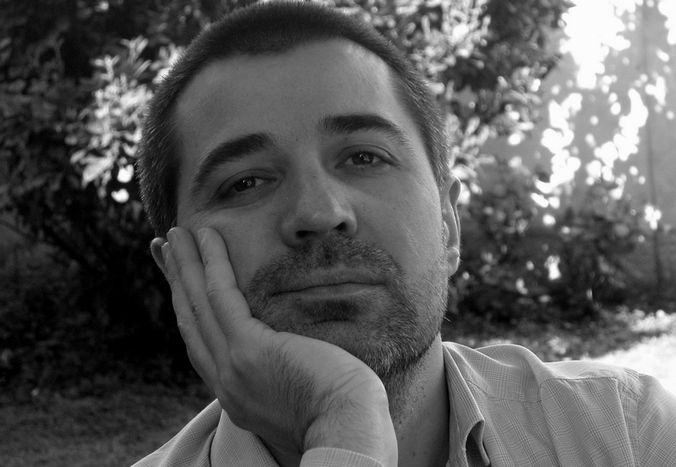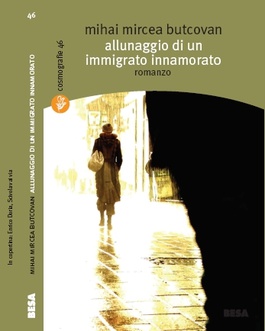
Mihai Mircea Butcovan: 'the majority of Italians ignore everything which Romania does for the EU'
Published on
Translation by:
 Michelle Williams
Michelle Williams
The Italy-based writer and poet, 40, looks at the Romania he left behind twenty years after the revolution ended the communist regime. Interview
When the Berlin wall crumbled, the debris trundled eastwards. It took a month for the revolution to reach Romania and sweep over the dictator's regime. 'You don't know about it but I was there,' is how the poet and writer Mircea Butcovan ends a statement in December 1989. After twenty years the author of Butterfly District (' Borgo farfalla') and Moon-landing of a love struck immigrant ('Allunaggio di un immigrato innamorato', 2006) looks from Italy to Bucharest and turns to speak of what happened on Christmas Eve when the Romanian president Nicholae Ceaucescu was executed by firing squad. After this, many of his revolutionary compatriots made the decision to become migrants.
What emotions did you experience when the Berlin wall came down? Consider if the regime had passed you by - think about those who would succeed them in Romania and the months which separated the fall of the wall and the execution of Ceaucescu. What sort of expectation was there in the country?
We couldn't learn news of this sort. I was also a soldier therefore I couldn't even listen to Radio Free Europe radio or Voice of America (the dissident radio station to which you could tune in at home and through which the west could learn about what was happening with the regime). I only knew what happened in Europe in December right after the fall of our dictator.
What happened to Bucharest immediately after the revolution?
 You know what Franco Battiato sings in his song; 'social evolution doesn't serve the people if it isn't preceded by an evolution of thought.' It just happened that Romania reawakened from the good daydream of the revolution and found herself in a nightmare. She fell into a crisis which would allow a 'mutation' of conscience and these contradiction left her alone to try and understand how much time she would now serve with this state of affairs.
You know what Franco Battiato sings in his song; 'social evolution doesn't serve the people if it isn't preceded by an evolution of thought.' It just happened that Romania reawakened from the good daydream of the revolution and found herself in a nightmare. She fell into a crisis which would allow a 'mutation' of conscience and these contradiction left her alone to try and understand how much time she would now serve with this state of affairs.
What contradictions?
The most important! Most of the people who collaborated with Ceaucescu's regime as informers were also retained in successive governments - giving an impression of the old and corrupt style of democracy. This drove me to leave the country when I was twenty-two.
You arrived in Italy in 1991. Like many Romanians you left your country right after the revolution. You toppled a corrupt regime only to leave straight away. Don't you think that there is some inconsistency in your decision?
I left Romania to give myself the opportunity to pursue my studies. My family - like many others - was successfully destroyed economically from about 1989 onwards. When the regime fell I thought that the revolution would immediately change our reality. Not only did this not happen but it is possible to say that the opening to the west brought very different and negative changes. The worst of all is that today there is a ruling class that many inherited in the mindset and from the modus operandi of the old regime. This makes the generation of twenty-somethings who came after me still capable of hoping for a turnaround in the country.
Didn't the entrance into the EU in 2005 help at all?
The EU is necessary and useful but an opportunity like this still encourages people to look after their own interests. In this case responsibilities are often as much Romania's as the EU's. My country must look at (and also monitor better) the civil treatment of its migrants in other countries because the problem remains that these people are still the engine of the Romanian economy. The other thing which the EU must consider when it allows another country to enter is not only the territory enlargement but also the cultural differences. Unfortunately these attempts at understanding other cultures are always left too late. In Italy people know few Romanians and this is often instrumental propaganda by those who oppose a country's entrance to the EU. The majority of the Italian people ignore everything which Romania does for the EU and even says that the country is a 'non-EU' state.
How do you react to the nostalgia which spreads around the country and the people who think that life was better under Ceausescu?
Firstly, before the fall of the wall there was a strong social disparity in my country and furthermore there wasn't any freedom of expression - the regime even monitored your thoughts. After the revolution social disparity became even stronger and paradoxically Romania became even worse than it had been then. Ceausescu used to say 'A house and a job for everyone' - education was public and healthcare was for everyone but after the fall of the communist dictator this wasn't possible anymore. My next poetry collection will have the title From Communism to Consumerism and summarises what has happened in the past two decades. There was a political oligarchy which the country followed, an economy which was enriching yet profitted the free market to the detriment of collectivity.
So, what remains of the revolution of December 1989?
In his article Numbers Trilussia (Italian dialect poet Carlo Alberto Salustri, who died in 1950 - ed) describes very well how a dictator is allowed his power. This is also how it happened in Romania. 'The dictator, as one, falls from strength and power when the nobodies or 'everyman' who follow him stop. Therefore we need to ask ourselves what these nobodies have done and if there was a revolution or just a coup d'etat which makes part of the plans and international politics remain obscure.
Translated from La Romania dopo la caduta del muro: «Dal Comunismo al consumismo»


